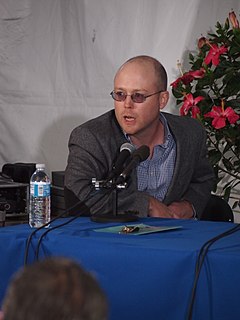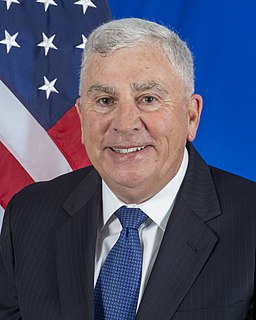A Quote by Joby Warrick
In 2002 and 2003, the Bush administration decided against bombing Zarqawi's camp in northern Iraq because it might derail plans to depose Saddam Hussein. By focusing on Zarqawi in his speech at the United Nations, Secretary of State Colin Powell inadvertently spread his fame throughout the Arab world.
Related Quotes
The first weekend after the attacks of September 11, George W. Bush had a meeting at Camp David with his top advisors, including Colin Powell, the secretary of state. And there was a lively debate about Iraq policy, in which some people from the Pentagon were arguing that the war against terrorism should include Saddam Hussein.
Should President Clinton have killed Osama bin Laden when he had the opportunity in 1990s? Should President Bush have sent the U.S. military into Iraq to depose Saddam Hussein in 2003? Should President Obama have withdrawn all troops from Iraq in 2011? Such questions provide no real insight into future considerations.
When George W. Bush decided to save the American position in Iraq by going against the advice of all of his wise men, of Jim Baker and the whole Iraq Study Group, and 90% of his administration, that was George W. Bush's decision. So we have to bear in mind that this isn't an administration we're electing. It's a person that we are electing.
The Petraeus-Crocker testimony is the kind of short-lived event on which the Administration has relied to shore up support for the war: the 'Mission Accomplished' declaration, the deaths of Uday and Qusay Hussein, Saddam's capture, the transfer of sovereignty, the three rounds of voting, the Plan for Victory, the death of Abu Musab al-Zarqawi. Every new milestone, however illusory, allows the Administration to avoid thinking ahead, to the years when the mistakes of Iraq will continue to haunt the U.S.
Since losing his reelection in 2002, Barr has lost not only his power but also many of his friends. It doesn't help that after alienating nearly every Democrat with impeachment, he spent the next five years alienating his fellow Republicans - railing against the invasion of Iraq, the PATRIOT Act, and the Bush administration in general.































